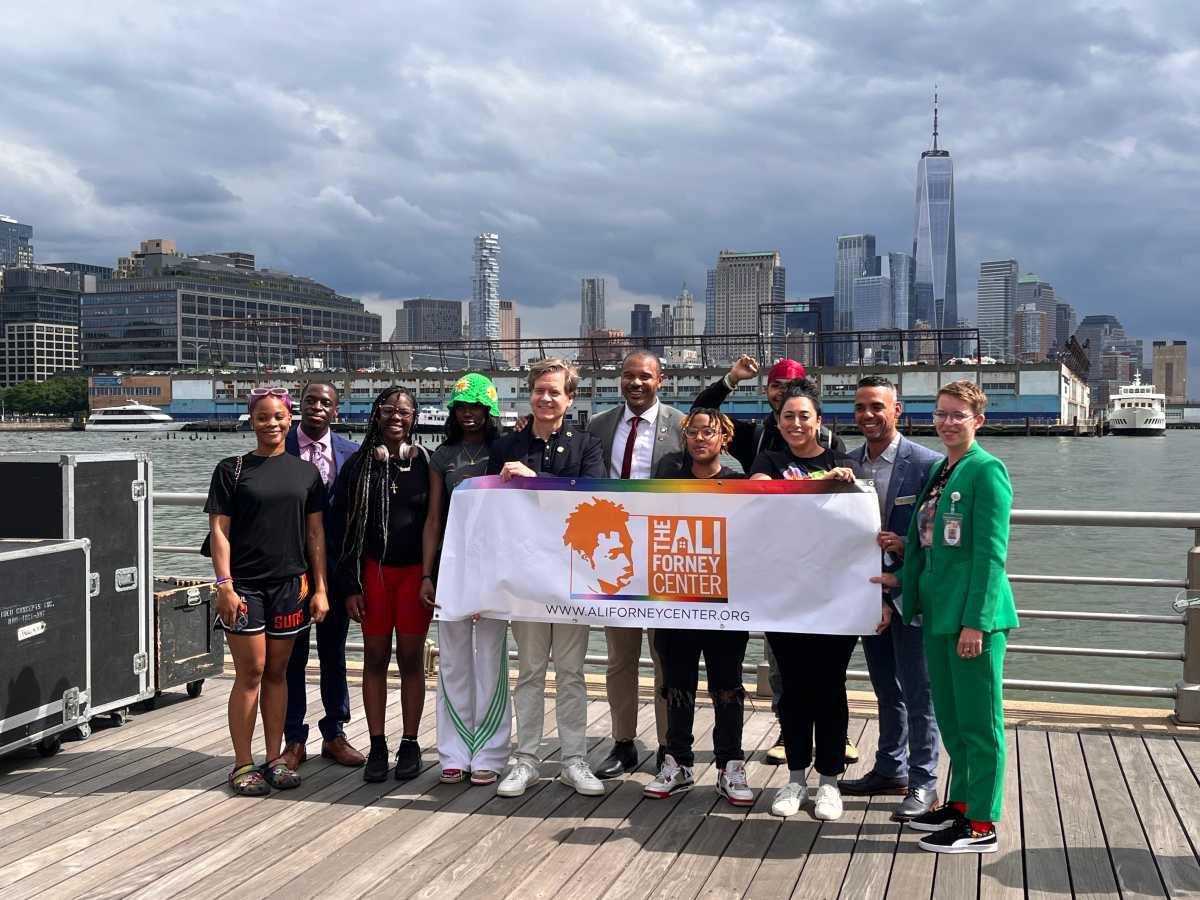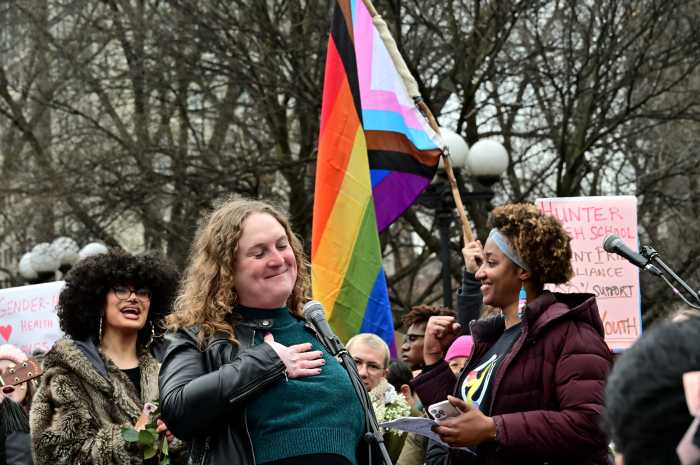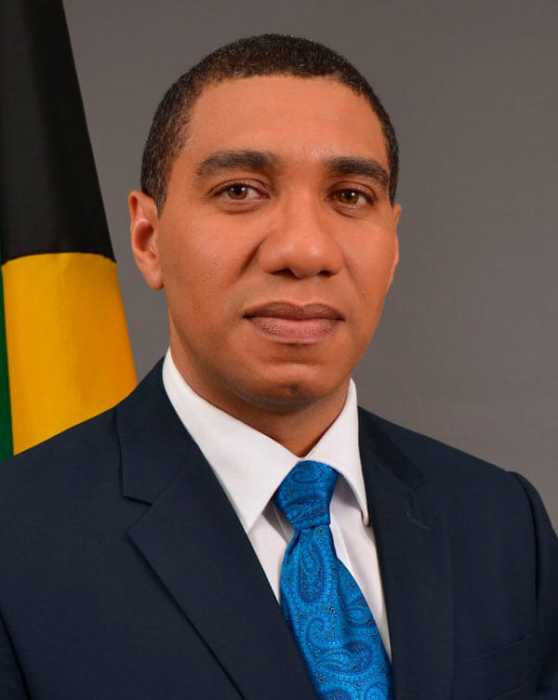In response to mounting complaints over the treatment of LGBTQ youth in the foster care system, The Ali Forney Center announced a new agreement with the New York City Administration for Children’s Services (ACS) to prevent abuse and implement new policies aimed at providing safe and affirming home environments for queer young people.
Representatives from The Ali Forney Center — a shelter provider offering 24-hour support to homeless queer youth — joined out State Senators Jabari Brisport of Brooklyn and Brad Hoylman-Sigal of Manhattan at the end of the Christopher Street Pier on June 11 to announce the new agreement and call on government leaders to execute the new policies and codify protections for the future. A representative from the Office of Bronx Councilmember Althea Stevens also showed up in support.
The agreement was motivated in large part by what The Ali Forney Center described as an increase over the last year in anti-LGBTQ remarks and treatment by both state and city workers responsible for protecting the well-being of the city’s children. While some policies and training programs are technically already in place, some workers are failing to adhere to them, creating a negative effect on the overall delivery of services, according to The Ali Forney Center.
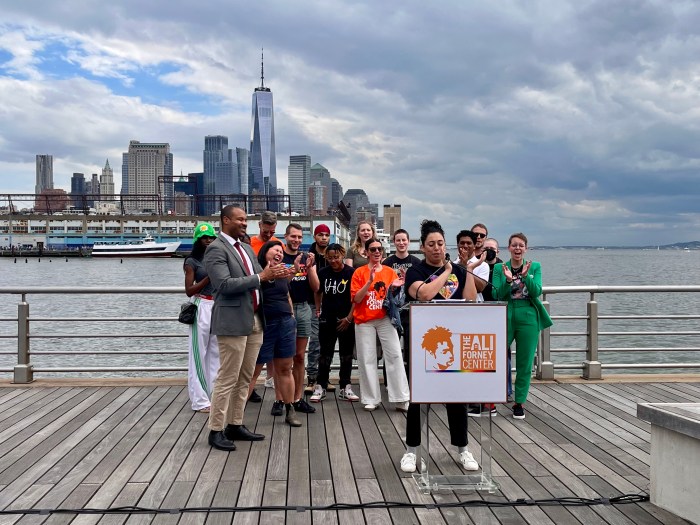
In one such example reported by The Ali Forney Center’s housing director, an ACS worker who was conducting a home visit refused to use the young client’s chosen name, insisting instead that the name could not be used in court — and that wasn’t the only time ACS workers allegedly failed to use the correct name of a youth individual, according to The Ali Forney Center.
There were also allegations that some state and city workers did not consider it to be child abuse when young people were barred from living in accordance with their gender identity.
The Ali Forney Center requested prompt policy reforms from the government, including adding more guidance for staff, revising the LGBTQ policy book that was most recently updated in 2012, and placing youth in affirming environments. The non-profit also called for tailored mental health services, affirming family therapy, and educational programs for both families and child welfare staffers.
Alex Roque, who is The Ali Forney Center’s president and executive director, said those kinds of problems have persisted one way or another for many years — and that ultimately factored into the creation of The Ali Forney Center, which was named after the gender non-conforming trans individual who served as an advocate for LGBTQ youth before they were fatally shot in Harlem in 1997.
“This really starts with the reality that we see every day at The Ali Forney Center and the fact that Ali Forney was a young person who was killed by the system,” said Roque, who explained that Forney’s family did not have adequate support at a time when it was needed the most.
Roque said the agreement with ACS represented the culmination of a decade of work to drill the message to government agencies that homophobia and transphobia is indeed child abuse. When Ali Forney Center first held a meeting with ACS about the issues, Roque said they were “incredibly receptive.”
“There was clear agreement,” Roque said. “There was no pushback. It was actually a very strong invite from ACS to help and to partner with them on this.”
When asked to confirm the agreement, ACS spokesperson Marisa Kaufman told Gay City News, “It is of the utmost importance that all of the youth and families we serve are treated and cared for in an affirming manner. We look forward to working in partnership with the Ali Forney Center and benefitting from their expertise so that every young person and family in contact with ACS feels affirmed and supported.”
Among other goals, The Ali Forney Center has also called on the City Council to pass legislation proposed by out Brooklyn Councilmember Chi Ossé to require ACS to report every year on the placement of queer youth and statistics on how many are in the system.
Against the backdrop of the towering World Trade Center and the Statue of Liberty, the group of advocates at the end of the Christopher Street Pier invited elected officials to speak at a podium. The remarks were interspersed with chants such as “protect their rights, don’t neglect” and “youth justice matters.”
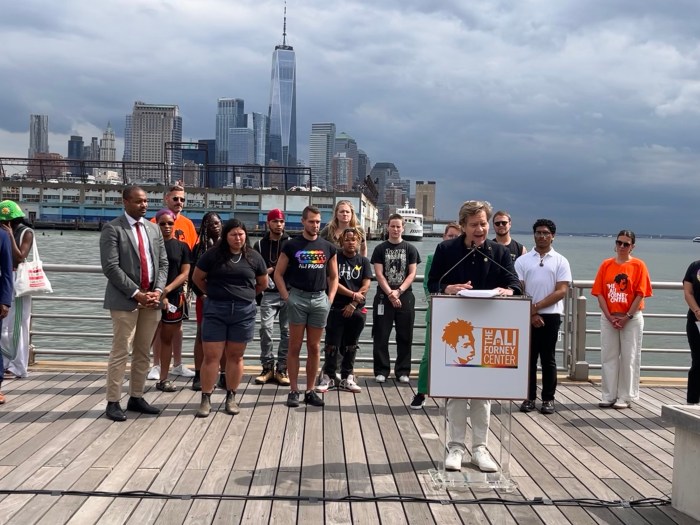
Brisport and Hoylman-Sigal acknowledged the legislative attacks on LGBTQ young people — especially trans youth — around the country as they emphasized the importance of protecting that population here in New York. Brisport, a former public school teacher, said his experience in the classroom informs his perspective as a lawmaker in Albany — and now he chairs the Committee on Children and Families in the upper chamber.
“I just know I had students that were struggling with their own identities,” Brisport explained. “I was a middle school teacher, so I had the kids that were going through puberty and just learning what they liked and what they were and it’s a very sensitive time and a very delicate time. It’s a time of your life when you need the most love and the most resources.”
Implementing the changes, Brisport said, is the next step — and he added that The Ali Forney Center can “count on me as a partner,” especially since he said the Office of Children and Family Services also must step up in their statewide capacity.
Hoylman-Sigal, who chairs the Senate Judiciary Committee, also expressed concern over the patterns of abuse highlighted by The Ali Forney Center.
“Bigotry has no place in New York City, especially in organizations run by the government and responsible for our most vulnerable residents,” Hoylman-Sigal said. “Homophobia and transphobia pose direct threats to the safety and well-being of our city’s LGBTQ+ youth, and at a time when trans kids are under attack all across the country, it’s unacceptable that New York is not serving as the beacon of acceptance that it promises to be.”
He added, “Now that New York City ACS has agreed to implement the comprehensive reforms to address and eradicate the abuses taking place under their watch, they’ve got to do it.”
Roque agreed, saying, “We now need to push that there is investment in helping ACS do this, because it is going to take time, it is going to take money, it is going to take resources, it is going to take training.”

